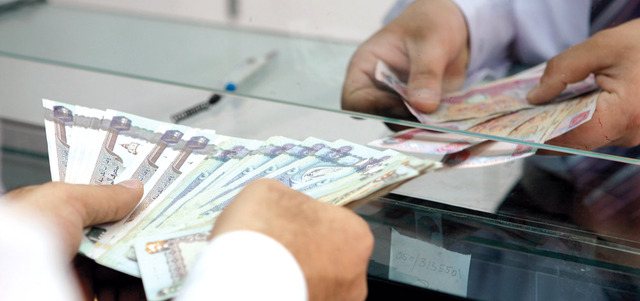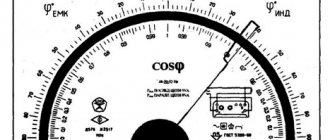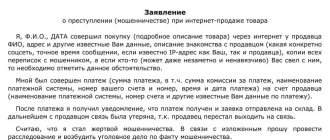Agreement in words
I lent my grandson $6,000. He promised to return it in 2 months, 2 years have already passed, and the debt has not been returned. He started avoiding me and didn’t answer calls. I didn’t take a receipt. But the neighbor witnessed the transfer of money. What should I do? Can I sue him for a car bought with my money?
N. Semenova, Smorgon
— The fact that you don’t have an agreement or receipt is not scary. Within three years, you can file a lawsuit against your grandson to collect the amount of the debt from him. You can file a claim yourself or with the help of a lawyer. If it is not possible to contact a lawyer, then usually the form of a claim for loan collection can be found on the information stand in the court or on the court’s website on the Internet. It is also necessary to pay a state fee - 5% of the claim amount.
Belarusians took out a record amount of loans from banks for purchases More details
The claim is filed at the place of residence of your grandson. As for the car, you can file a motion to seize the vehicle until the court decision. This means that the grandson will not be able to use the car. If the court rules in your favor, but your grandson still refuses to pay the debt, then the bailiff may confiscate the car to pay off the debt.
I lent my brother 2 thousand dollars. I have a receipt from him. But it is not certified by a notary. What is the validity period of this receipt?
E. Valevich, Brest
— The receipt is valid regardless of whether it is certified by a notary or not. From the date of the deadline for repayment of the debt, you have 3 years to go to court.
I'm owed $50. The debtor wrote a receipt according to which he had to repay me on June 4. What should I do? Should I go to the police or court?
G. Petrovskaya, Minsk district
— In order to file a claim in court, you must pay a state fee in the amount of 5% of the claim amount. If you are unable to draw up a statement of claim yourself, you will have to turn to lawyers or solicitors for help. Taking into account all of the above, it turns out that your expenses will be higher than the amount of debt. But if the court rules in your favor, then all of them will be compensated.
For what amount can a promissory note be issued?
K. Zhitko, Gomel
— Belarusian legislation allows you to transfer money on credit without drawing up the appropriate document if the amount does not exceed ten basic units (245 rubles). A verbal agreement is sufficient here. If you lend an amount of more than 10 basic units, then you must draw up a receipt or a loan agreement. By the way, if you nevertheless refuse to draw up a receipt and a loan agreement, the court will not take into account the testimony of witnesses. But in this case, available photo, video materials, SMS or email correspondence with the borrower may be taken into account, confirming the fact of transfer and receipt of money in debt.
How is money transferred?
Funds are transferred by the buyer to the seller for various property. The process can be carried out in two ways:
- Providing cash. In this case, the amount is transferred from hand to hand. The procedure can be performed on the basis of a correctly drawn up receipt or with the participation of a notary.
- Money transaction. Under these conditions, the money is not offered in cash, so it is transferred in various ways to the seller's account. Additionally, a bank letter of credit can be used.
Each method has both advantages and disadvantages. Transaction participants have the right to independently decide which method will be used.

Will they help you in court?
Is it possible to go to court if there is no receipt or agreement?
K. Kulik, Mogilev
- Yes, you can go to court, but a positive result for you in this case is not guaranteed.
Is it possible to recover money from a debtor if he has no property and is unemployed?
A. Semenyukova, Grodno
- No. The court will make a decision to collect the debt, but the question is how to execute it. A bailiff cannot force a debtor into employment. But in some cases, he may resort to other measures, for example, limiting the debtor’s right to leave the country or depriving him of the right to drive a vehicle, use mobile communications, or the Internet.
I recently loaned $500 to friends. They are not going to give it away. I want to go to court, but I heard that in Belarus, refunds through the court are carried out only in Belarusian rubles. Is it true?
E. Maksimov, Brest
— The legislation of the Republic of Belarus does not contain a ban on the transfer of funds in foreign currency as a loan. Payments in foreign currency under a loan agreement are possible out of court. That is, you can voluntarily repay the debt in foreign currency. But the court will make a decision on the repayment of the debt in Belarusian rubles at the National Bank exchange rate.
Is it possible to repay a debt with interest through the court if it was not indicated in the receipt?
A. Kuleshov, Minsk
- Yes, you can. Even if interest is not specified in the receipt or loan agreement, it can still be recovered from the debtor. In Belarusian legislation there is the concept of “interest for the use of other people’s funds.” It is equal to the refinancing rate (currently 10%).
What to do if the debtor does not comply with a court decision to pay debts? The man is 40 years old and does not officially work anywhere. He has no property. Lives with relatives. I worked for 4 months, paid off the debt, then quit and stopped paying. He owes me 2,730 rubles. The bailiff cannot do anything. What to do in such a situation?
E. Malinovskaya, Gomel
— First, you need to write a petition to the bailiff to apply restrictive measures to this citizen: a ban on traveling abroad, deprivation of the right to drive a vehicle, a ban on using mobile communications and the Internet. Secondly, constantly contact the executor with a written request so that he takes more active measures to search for the debtor’s property. If the contractor does not respond, I recommend writing a complaint to the head of this enforcement department.

Belarusians will be able to repay loans ahead of schedule without notifying the bank More details
In addition, the law establishes administrative liability for the debtor’s violation of the legislation on enforcement proceedings (evasion from appearing before the bailiff, failure to comply with the bailiff’s requirements, failure to provide information about property, etc.).
Pros and cons of hiring a notary
Transferring money in cash with the help of a notary has the following advantages:
- a deal is concluded and settlements are made in one place;
- It is allowed to use not only cash, but also non-cash payments;
- there is no need to sign additional agreements represented by a receipt;
- no funds are spent on renting a safe deposit box or using a letter of credit;
- engaging a notary serves as an additional guarantee of the legal purity of the transaction;
- The specialist keeps copies of all documents, so if the originals are lost, they can be obtained from the archive;
- The notary is responsible for all certified transactions.
But using the services of a specialist has some disadvantages:
- for transferring money to the notary's deposit you have to pay a certain percentage;
- expenses for cashing out increase;
- using a deposit is a paid service;
- even if a deposit is not applied, all notary services are still paid by both participants or only one party to the transaction.
If the buyer encounters various problems during the process of signing or registering the contract, he can demand his money back from the notary at any time.

Application of a safe deposit box
This method is considered reliable and simple, but certain funds will certainly be paid for the services of the selected banking institution. They act as payment for renting a depository, which is a special storage facility. How to transfer money using a bank safe deposit box? The process is divided into the following stages:
- simultaneously with the preparation of the preliminary purchase and sale agreement, an agreement is concluded with the selected bank for the rental of the depository;
- the buyer, with the second participant, recalculates the funds, after which they are sent to storage;
- the bank’s services are paid for, and this process is usually carried out by the buyer, since he is interested in the safety of funds and protection from fraud;
- a tripartite contract is drawn up with the bank, since the credit institution, the seller of the property and the buyer take part in the transaction;
- the agreement specifies under what conditions the seller will be able to receive the funds, as well as until what date the money will be in the vault;
- then the main agreement is signed between the buyer and the seller;
- the transaction is registered in Rosreestr;
- With documents confirming the fulfillment of obligations, the seller contacts the bank, after which he is given the required funds.
With the help of such a money transfer agreement drawn up with the bank, each participant can protect themselves from possible fraud.

Pros and cons of a letter of credit
Using such a bank offer has many advantages. High security of transferring funds is guaranteed, and there is no need to deal with cash.
But there are also some disadvantages. These include the fact that to use a letter of credit you need to spend a little more money than when ordering a safe deposit box due to the increased cost of the service. Additionally, the number of signed documents increases. Not all banks offer this service.
Using a receipt
Often the transfer of funds is carried out using a regular receipt, drawn up by hand by the direct parties to the agreement. The process involves performing sequential actions:
- the parties agree to conclude a transaction;
- a preliminary agreement is signed;
- money is transferred to the seller by the buyer, for which a receipt is drawn up;
- the main agreement is concluded;
- The right to property is registered in Rosreestr.
The receipt for the transfer of money must include the following information:
- information about both parties to the transaction, provided by their full names, passport details and registration addresses;
- the date and place of transfer of funds is indicated;
- the exact amount transferred by the buyer to the seller is given;
- the actions that must be performed by the seller to transfer the right to property to another party to the transaction are prescribed;
- Each party signs the document.
A receipt is drawn up in two copies. It can be certified by a notary, for which you will have to pay for the services of a specialist. By engaging a notary, the chance of winning in court increases if the seller of the property does not want to conclude a deal.
Pros and cons of receipts
The advantages of transferring money using a receipt include:
- do not spend a lot of time and money on registration;
- the parties can independently agree to change the price of the property;
- usually used when relatives or friends are involved in a transaction.
But using a receipt has many disadvantages. These include the fact that there is a possibility that the seller will refuse the transaction, and the funds will only be returned through the courts. Therefore, this method is considered unreliable, since it is used in most cases by scammers.

The nuances of using a bank letter of credit
It is analogous to a safe deposit box, but it is possible to use non-cash payments. Transferring money in this way is carried out in several stages:
- the parties agree on the use of a letter of credit;
- a bank for cooperation is selected;
- a tripartite agreement is drawn up, which specifies the conditions under which the seller of the property will be able to receive funds, and this usually happens only after the property being sold is registered in Rosreestr in the name of the buyer;
- money is transferred to a bank account, and cash can also be used;
- two banks may be involved in the process of transferring funds.
This method is considered reliable, therefore it is used by responsible people who are really interested in concluding a deal. Bank services are paid either by both parties or by only one participant.

Pros and cons of a safe deposit box
Using such a service from a credit institution to transfer money has several advantages:
- the purity of the transaction is guaranteed, since fraudsters do not agree to sign an agreement with the bank;
- the security of money is ensured, since it is the bank employees who control access to the open deposit box;
- confidentiality is guaranteed;
- before the money is taken by the bank, it is counted and checked, so you can be sure that there are no counterfeits;
- if the deal fails for various reasons, the money is returned to the buyer.
A safe deposit box is considered the most secure payment method. But such a money transfer transaction has several disadvantages. These include the high cost of renting a cell and the need to draw up an additional agreement. You will have to pay for storage insurance, and the bank is not responsible for the information contained in the main contract. Payment is made only in cash.









